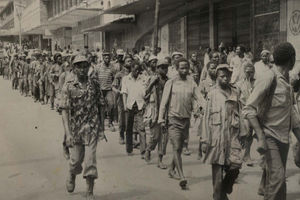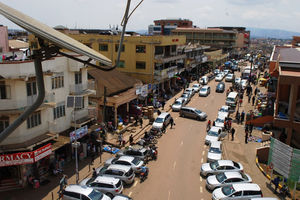
Mr Martin Ssempa. Photo/Courtesy
Quasimodo is a hunchback in Victor Hugo’s much loved novel, The Hunchback of Notre Dame. It’s a classic French novel about a beautiful street dancer, Esmeralda, who steals the hearts of bishops and soldiers in this renaissance era France of 1482. Published in 1831, it still captures the literary imagination of many, spurning several memorable films.
While Esmeralda is pretty, Quasimodo is shown as a disadvantaged man who is both challenged by deafness, poor sight, and hunchback, all combined to make him despised and vilified by the citizens of Paris.
This morning, as I reflected on the debilitating impact of growing up and living in an economy of developmental limitations in Uganda, I felt like a Quasimodo living among other Quasimodo’s who don’t really know that we are all hunchbacks.
We grew up and live in a low-ceiling economy, which means most people are unemployed or underemployed, and are living in a constant state of economic distress. In such a world, we are surrounded by the never ending noise of politicians and their opposition trying to win the next election.
We are pressed by lives where our salaries do not meet our basic needs, and we constantly have to find ways to make ends meet. Employees report to work, leave their coats at their desks and go off to hustle elsewhere for the enjawulo.
Over the last few weeks, I have had the opportunity to visit Turkey and Philadelphia in the US. I was impressed by the quality of architecture and services at Istanbul airport in Turkey. I had not travelled for about six years, and had been mostly limited to my work between Makerere University and my home in the village of Jungo Kasanje, Wakiso District, where I have lived for the last 12 years. Okutambula kulaba, okudda kunyumya (travelling away is seeing and learning, returning is sharing with others).
My visit to Philadelphia, where I went to graduate school 30 years ago, has also been a great source of inspiration. I noticed immediately that there was no usual morning to evening noise. It’s hard to know that you are noise traumatised until you go away where there is no noise.
I also got to visit the Washington Bible and African American History museums. I got to see a part of our Black history that many don’t know, or have forgotten. The Black struggle against slavery, racism and exploitation has come far. I got to see how our quest for Black people development has been hijacked by the sexual revolutionaries who now use it to promote their sexual anarchy agenda. I was glad to be with my two children to see it, but I really wished that all other children, friends and family in Uganda could also get to see it.
A good place to start is to remember where we are coming from… slavery, colonialism. And now poverty, and underdevelopment. We must remember where we are going in our quest for Black freedom, independence and social economic transformation. We must appraise and applaud what has been done so far.
I think we have built and lived in low-ceiling houses which hinder us from walking upright. We need to break those low ceilings, build higher ceilings for us and our children. Then we can stop being the richest continent on earth in terms of natural resources, but the poorest people on earth in terms of quality of life.
I am tired of us being called the hunchbacks of old Kampala. I want us to be called the phenomenal, iconic, legendary and successful global leaders of the new Kampala; the new Uganda.
Mr Martin Ssempa is the pastor Makerere Community Church, @martinssempa




